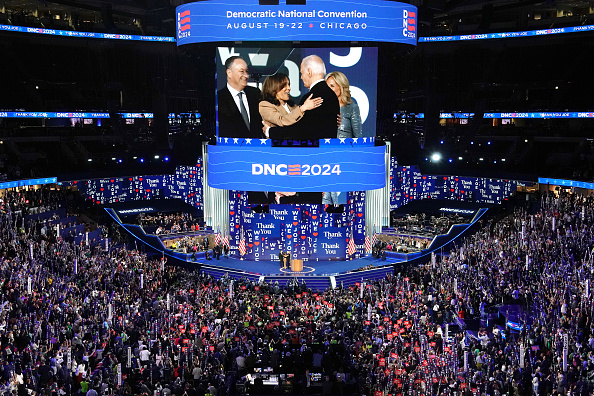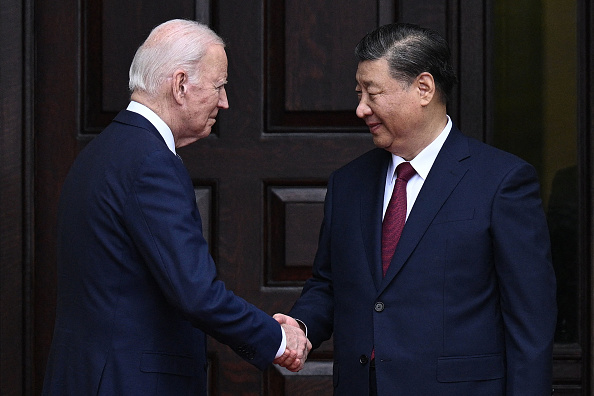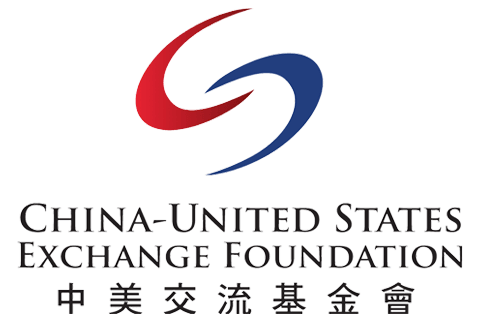
Dear Focus Reader,
On Thursday night, U.S. Vice President Kamala Harris took the stage at the Democratic National Convention to formally accept the party's presidential nomination. In her acceptance speech, Harris outlined her foreign policy principles, marking the first time she discussed how she would steer the U.S. on the global stage.
She pledged unwavering commitment to defend the nation's security and ideals, and to reinforce American leadership globally, with a specific focus on countering China. Harris stated that she would ensure "America – not China – wins the competition for the 21st century," particularly in critical sectors like space and artificial intelligence.
Brian Deese, former director of the White House National Economic Council and current economic advisor to Vice President Harris, also recently echoed this sentiment. He argued that China's state-led strategy to dominate global manufacturing of goods like electric vehicles and solar panels is unsustainable, and he advocates for the U.S. to use "active yet measured" use of trade tools like tariffs to level the global playing field.
The White House also announced this week that National Security Advisor Jake Sullivan will be traveling to China later this month to meet with Chinese Foreign Minister Wang Yi, the first visit from someone in his role since 2016, and a further indicator of continued dialogue efforts between the two countries. However, a senior U.S. official says this doesn't indicate a softening in policy towards China, stating this "is an intensely competitive relationship." He also noted that the Biden administration is "committed to making the investments, strengthening our alliances and taking the common step on tech and national security that we need to take."
Meanwhile, China is actively working to strengthen its position in the global tech value chain and reduce vulnerability to external pressures, by advancing areas like AI and biotechnology. Earlier this week, Chinese official directives outlined key elements of the tech-driven modernization plan central to the Third Plenum. The strategy focuses on developing a skilled labor force for high-tech manufacturing, channeling private investment into infrastructure by removing barriers, and encouraging private companies to lead in fundamental research, reflecting Beijing's strategy to align labor, capital, and enterprises with its broader economic goals.
These developments reflect the ongoing competition between the U.S. and China on the global stage, but how a new administration in the White House would shape the future bilateral relationship between the two nations remains to be seen.Learn more about China-U.S. relations by catching up on our latest Focus content, including topics on the U.S. elections, people-to-people exchanges, and more.
The percentage the "fear index" (VIX) surged earlier this month, reaching its highest level since the outbreak of the COVID-19 pandemic in March 2020, following declines from three major indices of the New York Stock Exchange.
Learn more in "Is Global Stock Market Turbulence a Warning?," by Yu Xiang, a Senior Fellow at the China Construction Bank Research Institute.
Desert Rails | China Infrastructure Abroad
Watch VideoIn our Focus Insights section, we shared an article by Chris McNally discussing how the U.S. presidential election is likely to shape the future of U.S.-China relations.
We want to hear from you!
In what ways could the U.S. election outcome influence global stability and power dynamics?
Submit your thoughts to USeditor@chinausfocus.com for a chance to be featured in next week's Focus This Week.
useditor@chinausfocus.com for more info.
Prepared by China-US Focus editorial teams in Hong Kong and New York, this weekly newsletter offers you snap shots of latest trends and developments emerging from China and the U.S. every week. It is a community space to exchange thoughts and ideas about the China-U.S. relationship and beyond.
- 2024-08-16 Focus This Week: Working Group Progress
- 2024-08-09 Focus This Week: Walz-ing into a new era?
- 2024-08-02 Focus This Week: Time Remaining
- 2024-07-26 Focus This Week: Political Shifts
- 2024-07-19 Focus This Week: The Third Plenum
- 2024-07-12 Focus This Week: 75 Years of NATO
- 2024-06-28 Focus This Week: The Race to November
- 2024-06-21 Focus This Week: Global Currents
- 2024-06-14 Focus This Week: A Diplomatic Tour
- 2024-06-07 Focus This Week: Searching for Peace
- 2024-05-31 Focus This Week: A Rare Meeting
- 2024-05-24 Focus This Week: Inauguration Across the Strait
- 2024-05-17 Focus This Week: Alliance Strengthened
- 2024-05-10 Focus This Week: Strategic Partnership
- 2024-05-03 Focus This Week: Xi's Heading to Europe
- 2024-04-26 Focus This Week: Advancing Relations
- 2024-04-19 Focus This Week: Collective Concerns
- 2024-04-12 Focus This Week: Regional Coordination
- 2024-04-05 Focus This Week: Diplomatic Engagement
- 2024-03-29 Focus This Week: Economic Goals



